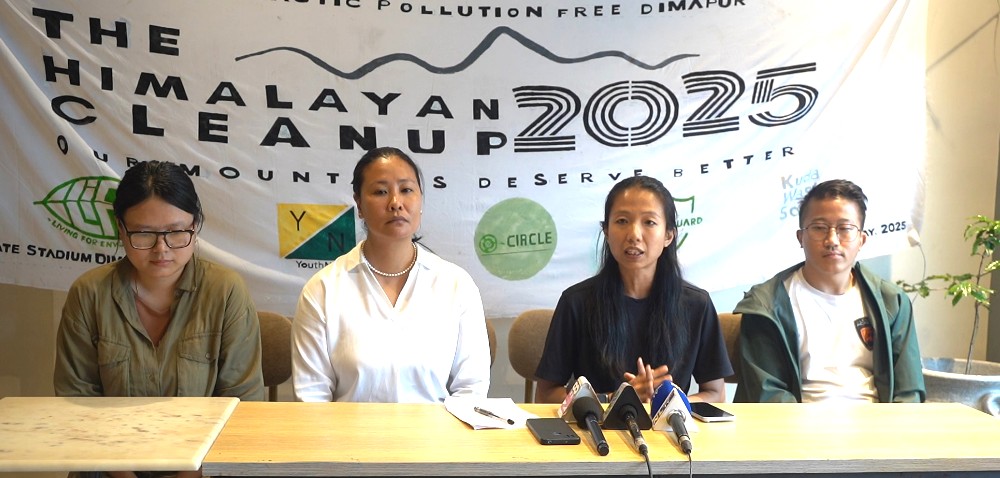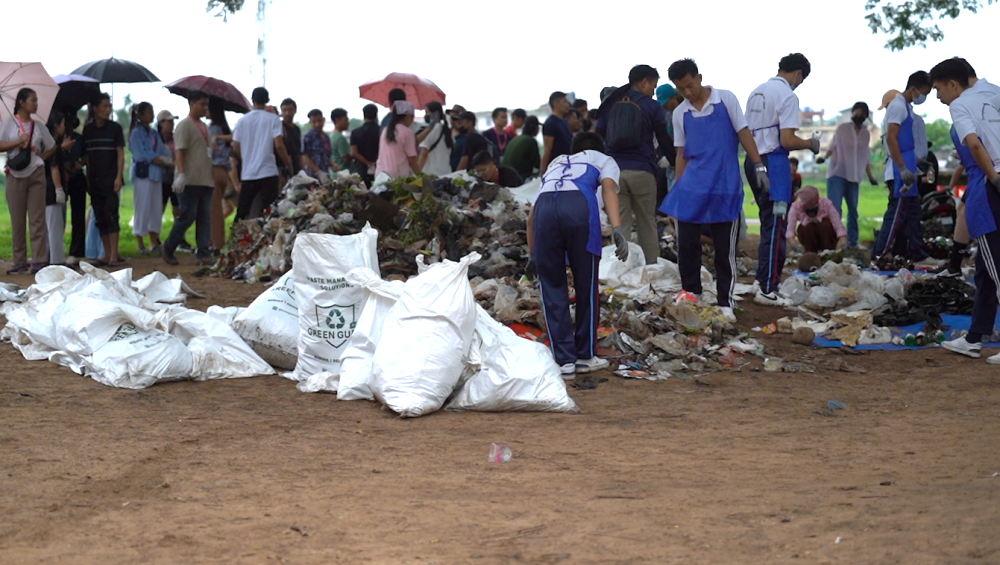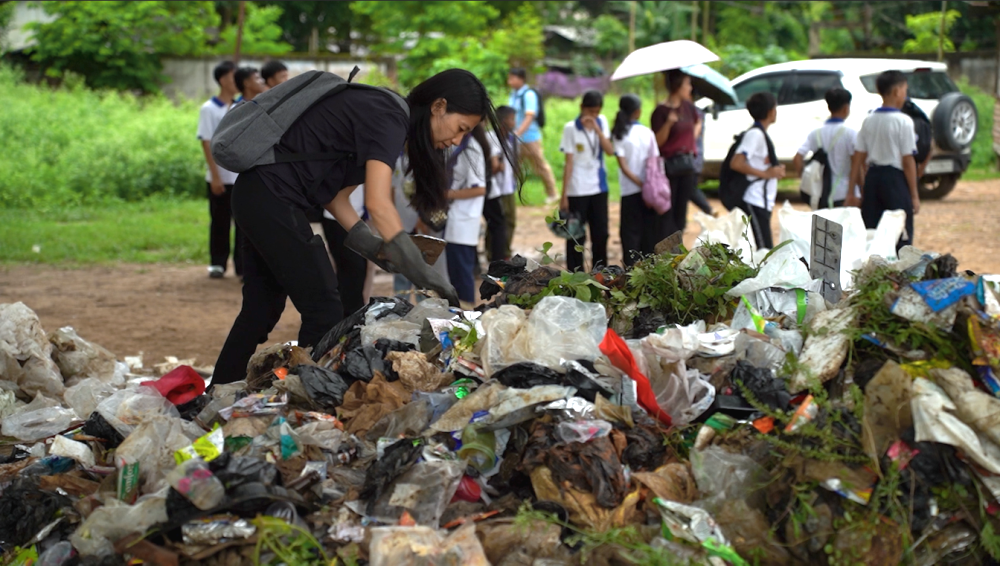SATURDAY, JUNE 07, 2025
- Home
- Plastic waste, diapers among biggest pollutants at Himalayan cleanup drive in Dimapur
Plastic waste, diapers among biggest pollutants at Himalayan cleanup drive in Dimapur
Published on May 29, 2025
Share
-

(From left) Sowete-Ü K Lekro, Founder and Managing Partner of e-Circle; Nune Chase, Director of YouthNet; Niksungla, Founder-Chairperson of Living for Environment (LiFE); and Khriemelie Metha, Founder of Green Guard, addressing media persons on The Himalayan Cleanup initiative, on Thursday in Dimapur. (EM Images)
- DIMAPUR — The Himalayan Cleanup (THC), a pan-Himalayan initiative to raise awareness on plastic pollution and encourage sustainable waste management, was conducted on Thursday in Dimapur, revealing massive amounts of plastic, diapers, and sanitary pads as major pollutants.
- The drive targeted two major locations—Dimapur Railway Station and State Stadium near DC Court junction. Volunteers from educational institutions, government departments, and NGOs joined hands for nearly three hours in a unified effort to address the growing menace of plastic pollution.
- The event was spearheaded by several environmental organisations including Living for Environment (LiFE), Green Guard, e-Circle, Kuda Waste Solutions, and YouthNet.

The Himalayan cleanup drive in Dimapur. (EM Images)

The Himalayan cleanup drive in Dimapur. (EM Images)

The Himalayan cleanup drive in Dimapur. (EM Images)
- Speaking to media later in the evening, the organisers said the total waste collected and brand audit results would be shared later, as the volume was too large to assess immediately.
- Founder of Green Guard, Khriemelie Metha, shared some of the challenges faced during the drive, particularly at the State Stadium. “The presence of diapers, condoms, alcohol bottles, and huge amounts of plastic waste shows that people use the facility and dump waste there without any concern,” he lamented.
Also view:
- He further pointed out that the root cause of ocean pollution lies in the mountains and rivers. “Most people talk about ocean cleanups without realising that rivers carry waste from the mountains. If we don’t clean the mountains, this waste will eventually end up in the oceans,” he warned.
- Despite the grim findings, Metha highlighted a positive takeaway—the involvement of students who witnessed firsthand how small efforts can make a big impact.
- Niksungla, Founder-Chairperson of LiFE, elaborated on the brand audit process, which tracks and identifies product brands found in waste. This, she said, is crucial in understanding the contribution of different companies to plastic pollution and helps target solutions. “The concept of waste is often misunderstood. Policies must be followed by implementation, which in turn requires monitoring,” she noted.
- Founder and Managing Partner of e-Circle, Sowete-Ü K Lekro, who led the cleanup at the railway station, shared that volunteers collected sacks full of diapers, sanitary pads, and even plastic bottles filled with tobacco spit. “People need to stop damaging recyclable materials by improper disposal,” she said.
Also read: CM Neiphiu Rio launches Nagaland Skill & Entrepreneurship Development Mission
- Due to the lack of authorised recyclers in the region, she mentioned that the team has no choice but to hand over recyclable materials to local scrap dealers. She called for shared responsibility in managing plastic waste. “It’s not the duty of one individual to ban plastic. As consumers, we must dispose of our waste responsibly. While the government must act, the public also needs to ask the right questions,” she added.
- Participating institutions and groups included: St. Mary Hr. Sec. School, St. Edmund Hr. Sec. School, High Mountain School, MGM Hr. Sec. School, Unity College, Christian Hr. Sec. School, Livingstone Foundation International, Unity College of Teacher Education, Bethesda Hr. Sec. School, Combat Academy, Team Better Dimapur, Commissioner of Police personnel, Railway staff, Dimapur Municipal Council (DMC), Eco Warrior, National Youth Climate Consortium – Nagaland Chapter, PHE department, and Dimapur Ao Baptist Arogo Youth Department.
- The audit team was assisted by students from St. Joseph University, Mount Mary College, and NEISSR, while documentation support came from Providence Institute of Design and Media and the Photography Club Dimapur.
- The organisers acknowledged support from Dimapur Municipal Council through manpower, sanitation vehicles, and financial aid. The drive also received support from Advisor of Tribal Affairs H Tovihoto Ayemi, Youth Resources and Sports Advisor S Keoshu Yimchunger, and an anonymous well-wisher.

